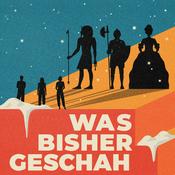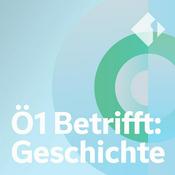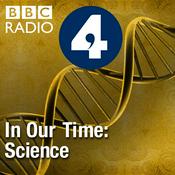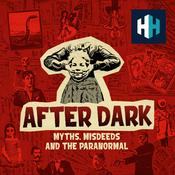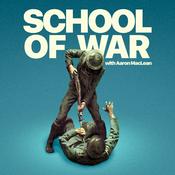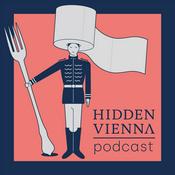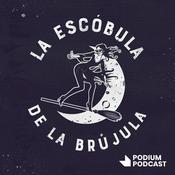99 Episoden

Barbarians Remix: Horse Racing, History, and the Final Champion's Day in Old Shanghai
30.12.2025 | 31 Min.
Champions Day in the city of Shanghai, November 1941. The world was at war, but the clubhouse at the Shanghai Race Club (now People's Park) was packed with owners and punters cheering on the pony. The funeral of Shanghai's richest widow, Liza Hardoon, was a spectacle that filled the streets of the International Settlement. Japanese occupiers and their Chinese collaborators came together in a bizarre ritual to celebrate the birthday of revolutionary leader Sun Yat-sen. The opening of a new movie featuring, of all subjects, Charlie Chan had folks lining up at the local cinema box office. The world had changed, but the "Lone Island" of Shanghai persisted, as it had since becoming a treaty port a century earlier. In this encore episode from 2020, historian James Carter joins us to discuss his fascinating book Champions Day: The End of Old Shanghai. Carter brings to life the vivid tableau of an era coming to an end. By the end of the year, Japanese authorities would take control of Shanghai and the city would never again be the same. What did the end of the colonial era mean for Shanghai and its residents? Why were race tracks such powerful symbols? Join us as we discuss the history of horse racing, colonialism, and the last days of Old Shanghai.

The Dowager and the Dynasty: How did Empress Dowager Cixi rule China and should we blame her for bringing down an empire?
16.12.2025 | 51 Min.
How does a teenage girl from Beijing’s hutongs end up ruling the world’s largest empire—without ever technically sitting on the throne? In this episode, Jeremiah traces the improbable ascent of Empress Dowager Cixi, who entered the Forbidden City as a minor concubine and departed as the most powerful woman in Chinese history. The story begins in imperial catastrophe: the Xianfeng Emperor dies in the wake of the humiliating looting of the Summer Palace, leaving behind a four-year-old son and a power vacuum waiting to be filled. Cixi, her fellow empress dowager Ci’an, and Prince Gong move quickly to take control, using the child emperor as both symbol and shield. Jeremiah explains the peculiar constitutional fiction known as “ruling from behind the curtain” (垂帘听政), a political maneuver that allowed Cixi and Ci’an to steer the empire while officially remaining in the shadows. When Cixi’s own son, the Tongzhi Emperor, dies at eighteen, she executes another audacious maneuver—installing her young nephew, the Guangxu Emperor, ensuring that the throne remains occupied by someone conveniently underage. For a brief period—one hundred days, to be exact—Guangxu confers with intellectuals like Kang Youwei and Liang Qichao, planning an ambitious series of bureaucratic and military reforms. Cixi, unconvinced that constitutional monarchy and radical modernization were viable at the time, pulls the plug. Jeremiah and David examine the mystery surrounding the death of Zhenfei, the Pearl Concubine, as well as the lingering question of whether the Guangxu Emperor was poisoned by his aunt. Finally, we weigh the verdict of history: was Cixi a ruthless “Dragon Lady” who strangled China’s chances at modernity—or a pragmatic, formidable ruler judged by a double standard?

Barbarians at the Gate x China Books Review: From Heaven Lake
14.11.2025 | 27 Min.
In 1981, the Indian writer and poet Vikram Seth traveled from Nanjing, where he was studying literature, to his hometown of Delhi. Moving by train across China to Gansu, then hitchhiking southwest through Qinghai and Tibet, it was an itinerary that makes sense when a traveler has a surfeit of curiosity but a shortage of funds. Armed with half-decent Mandarin, a fistful of foreign exchange certificates, and a scrap of paper authorizing his route, he negotiated China just as it was emerging from the Maoist era. No WeChat. No Trip.com. No Google Translate. Just a student improvising his way home as the date on his travel pass crept ever closer: fording rivers in rickety trucks, suffering altitude sickness, dealing with roadside thieves and the occasional military checkpoint. From Heaven Lake, the book that came out of that trip, still hits hard. It’s sharp, observant, funny in places, bleak in others. A snapshot of a country trying to reinvent itself while one traveler tries to get home before his paperwork expires. In this Barbarians at the Gate crossover with China Books Review, Jeremiah sits down with Alexander Boyd to talk about Seth’s strange, scrappy journey, what travel in China looked like in 1981, and how a writer from India saw things Western visitors of the same era tended to miss in the early 1980s.

The Destruction of the Old Summer Palace (Remix)
29.10.2025 | 42 Min.
Yuanmingyuan, the "Garden of Perfect Brightness," commonly referred to as the Old Summer Palace, was a Qing Dynasty imperial residence comprised of hundreds of buildings, halls, gardens, temples, artificial lakes, and landscapes, covering a land area five times that of the Forbidden City and eight times the size of Vatican City. This expansive compound, once referred to by Victor Hugo as "one of the wonders of the world," now exists only as a sprawl of scattered ruins on the northern outskirts of Beijing, having been thoroughly burned and looted by the French and British over three days in October 1860, in the aftermath of the Second Opium War. The razed remnants of the glorious gardens have been left in place by the Chinese government as an outdoor museum of China's "Century of Humiliation" at the hands of foreign powers. On the 160th (now 165th) anniversary of the destruction of Yuanmingyuan, Jeremiah and David discuss the political and cultural clashes that led to the action, the significance of the incident for China's national self-image, and the government's attempts to repatriate the massive amounts of looted artifacts found scattered among the museums of Europe and the West. The conversation also explores the changing symbolic significance of the ruins in the context of a rejuvenated and economically powerful China.

The Voyages of Zheng He
16.10.2025 | 33 Min.
It’s just two guys talking China's naval history. In this episode, David and Jeremiah dig into the story of Zheng He, the 15th-century admiral who took China's treasure fleets halfway around the world as Western Europe was just starting to figure out ocean navigation. Here's a Muslim eunuch who went from prisoner to running the emperor's treasure fleets. The man brought giraffes home as diplomatic gifts and offered up Sri Lankan kings as trophies to his boss. His fleets dwarfed anything Europe had, yet China wasn't really interested in claiming territory, just showing up, trading, and reminding everyone who ran the seas. Then Beijing killed the whole program. Just like that. Done. Why'd they stop? That's the question. Because when China bailed on blue-water sailing, Portugal and Spain filled the gap. Different game plan entirely. Flash forward to 2025, David is in Addis Ababa this month watching Chinese construction projects in Ethiopia and he's drawing lines between Zheng He's trade missions and today's Belt and Road. Same waters, same connections, five centuries apart. What can a eunuch, a giraffe, and a fleet of enormous ships can teach us about the history of globalization?
Weitere Geschichte Podcasts
Trending Geschichte Podcasts
Über Barbarians at the Gate
Höre Barbarians at the Gate, Österreich - die ganze Geschichte und viele andere Podcasts aus aller Welt mit der radio.at-App
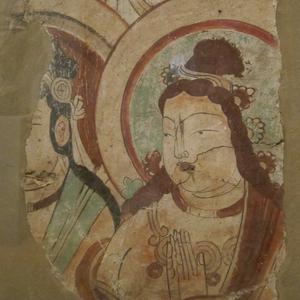
Hol dir die kostenlose radio.at App
- Sender und Podcasts favorisieren
- Streamen via Wifi oder Bluetooth
- Unterstützt Carplay & Android Auto
- viele weitere App Funktionen
Hol dir die kostenlose radio.at App
- Sender und Podcasts favorisieren
- Streamen via Wifi oder Bluetooth
- Unterstützt Carplay & Android Auto
- viele weitere App Funktionen


Barbarians at the Gate
App laden,
loshören.




